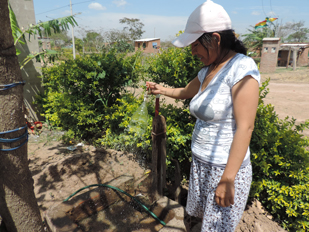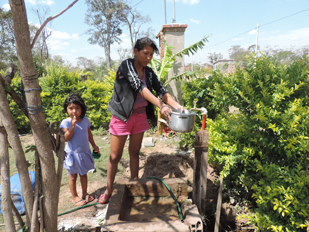On July 28, 2010, the United Nations General Assembly declared the safe access to drinking water and sanitation as a human right, and the FPSC works to contribute to the consolidation of this fundamental right of individuals, and also so that in arid and semi-arid areas the minimum water levels required for food production are met.
Based on these principles, at present, the FPSC develops seven projects:
- Palestinian Territories: Agreement 2014-2018: Sustainable and equitable rural development in the West Bank including the start and use of responsible management of land and water resources for small and medium farmers and Improving Palestinian farmers’ access to treated water by improving human resources in the West Bank water plants, both of projects funded by AECID.
- Mozambique: Strengthening the Mangunde Hospital for Health Improvement of Women and Children at Chibabava, Mozambique, funded by Nando Peretti Foundation, and Improving the living conditions of the population in the southern province of Sofala (Mozambique) by access to water and sanitation, funded by Canal Voluntarios.
- Bolivia: Improvement the lives of four rural communities in the department of Santa Cruz, Bolivia, through the provision of potable water, funded by Castilla and León Regional Governmen, and Improving living conditions for rural communities in Bolivia through targeted water supply interventions, funded by The OPEC Fund for International Development (OFID).
- Haiti: Increased access to sustainable safe water supply and sanitation services for poor rural population in Haiti, funded by The OPEC Fund for International Development (OFID).
On World Water Day, commemorated worldwide on March 22, the FPSC celebrates within the framework of one of its projects, that the Guarani people finally have drinking water in their homes.
Just twenty years ago a group of Guarani abandoned the farm where their families had lived for generations as “pongos” (servility regime officially abolished in Bolivia in 1953, but that still remains in remote regions of the Bolivian Chaco). They found no other territory in which to start their life as a free people than in the rugged foothills of the Cordillera Parabanó, in the municipality of Cabezas. There, they were taking small portions of arable land from the jungle, building rudimentary houses and eventually founded the community of La Ripiera.
It has taken more than three decades for its inhabitants to have running water in their homes, and that thanks to the project “Improvement the lives of four rural communities in the department of Santa Cruz, Bolivia, through the provision of potable water” that The FPSC and the Association for the Eradication of Poverty, funded by the Junta de Castilla y León, have been carried out since 2014.
The project has not been without technical difficulties. The well 233 feet deep has managed to extract water to the very soul of the hills, in a region where the liquid element is as valuable as the most precious metal. With a little flow rate of 1.50 litres per second, but enough to feed a 25,000 litres tank located at the tip of a promontory, where the matrix network runs through four kilometres dodging canyons and hills until reaching the community, where each of the 43 families received tap water at home. With access to drinking water, residents of La Ripiera cover their most prized need as a community.
The long road of the Guarani people towards equality with the rest of Bolivian society has taken a step in this struggle for the dignity of an ethnic group that has much to teach to the rest of the world.






